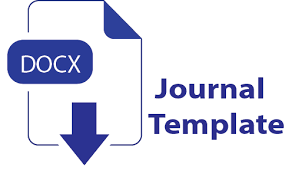DAMPAK TEKNIK ROLE PLAYING SEBAGAI METODE PEMBELAJARAN YANG MENYENANGKAN DALAM MATA KULIAH BAHASA INGGRIS MAHASISWA ADMINISTRASI RUMAH SAKIT
The Impact of Role Playing Techniques as a Fun Learning Method in the English Subject for Hospital Administration Students
DOI:
https://doi.org/10.38215/jutek.v2i2.41Keywords:
phenomenology, group communication, Al Islam Bandung Polytechnic, role play, adaptive structuring theoryAbstract
The purpose of this study was to determine the impact of the long-term Role Playing technique to the alumni of the Al Islam Bandung Polytechnic (PAIB), especially alumni of Hospital Administration Study Program students. The study was conducted for five months from July to November 2019. The research method used in this study was a qualitative method with a phenomenological approach. The data collection techniques, because the domicile of the alumni are scattered in many places far apart, then to facilitate the collection of questionnaires through a Google form that is distributed through the WA alumni network, Facebook and Instagram. In addition, a Focus Group Discussion was held on 20 alumni, as well as interviews with five alumni located in Garut, Tasikmalaya, Depok, Soreang and Bandung. The results of the study show that role play for alumni fosters group cohesiveness and class solidity. Students who have more proficiency in English help other students who have difficulties, both in memorizing dialogue, practicing reciting and preparing the stage set, so that students are able to express their feelings in role play and are able to reduce their nervousness when performing.
Tujuan dari penelitian ini adalah untuk mengetahui dampak teknik Role Playing dalam jangka panjang kepada para alumni Politeknik Al Islam Bandung (PAIB), khususnya alumni mahasiswa Program Studi Administrasi Rumah Sakit. Penelitian dilakukan selama lima bulan dari bulan Juli hingga November 2019. Metode penelitian yang digunakan dalam penelitian ini adalah metode kualitatif dengan pendekatan fenomenologis. Adapun teknik pengumpulan data, karena domisili para alumni tersebar di banyak tempat yang berjauhan, maka untuk mempermudah pengumpulannya dilakukan penyebaran angket melalui google form yang disebarkan melalui jaringan Grup WA alumni, Facebook dan Instagram. Selain itu juga dilakukan focus Group Discussion kepada 20 alumni, serta wawancara kepada lima alumni yang berlokasi di Garut, Tasikmalaya, Depok, Soreang dan kota Bandung. Hasil dari penelitian menunjukkan bahwa role play bagi para alumni memupuk kekompakan kelompok dan kesolidan kelas. Mahasiswa yang memiliki kemampuan lebih dalam Bahasa Inggris membantu mahasiswa lain yang kesulitan, baik dalam menghafal dialog, berlatih melafalkan dan mempersiapkan tata panggung, sehingga mahasiswa mampu mengekspresikan perasaannya dalam role play dan mampu mengurangi rasa gugup saat pentas.
Downloads
References
Downloads
Published
Issue
Section
License
Copyright (c) 2020 Jurnal Teras Kesehatan

This work is licensed under a Creative Commons Attribution-ShareAlike 4.0 International License.
Authors who publish articles in Jurnal Teras Kesehatan agree to the following terms:
- Authors retain copyright of the article and grant the journal the right of first publication with the work simultaneously licensed under a CC-BY-SA or the Creative Commons Attribution–ShareAlike License.
- Authors can enter into separate, additional contractual arrangements for the non-exclusive distribution of the journal's published version of the work (e.g., post it to an institutional repository or publish it in a book), with an acknowledgment of its initial publication in this journal.
Authors are permitted and encouraged to post their work online (e.g., in institutional repositories or on their website) prior to and during the submission process, as it can lead to productive exchanges, as well as earlier and greater citation of published work (See The Effect of Open Access)














